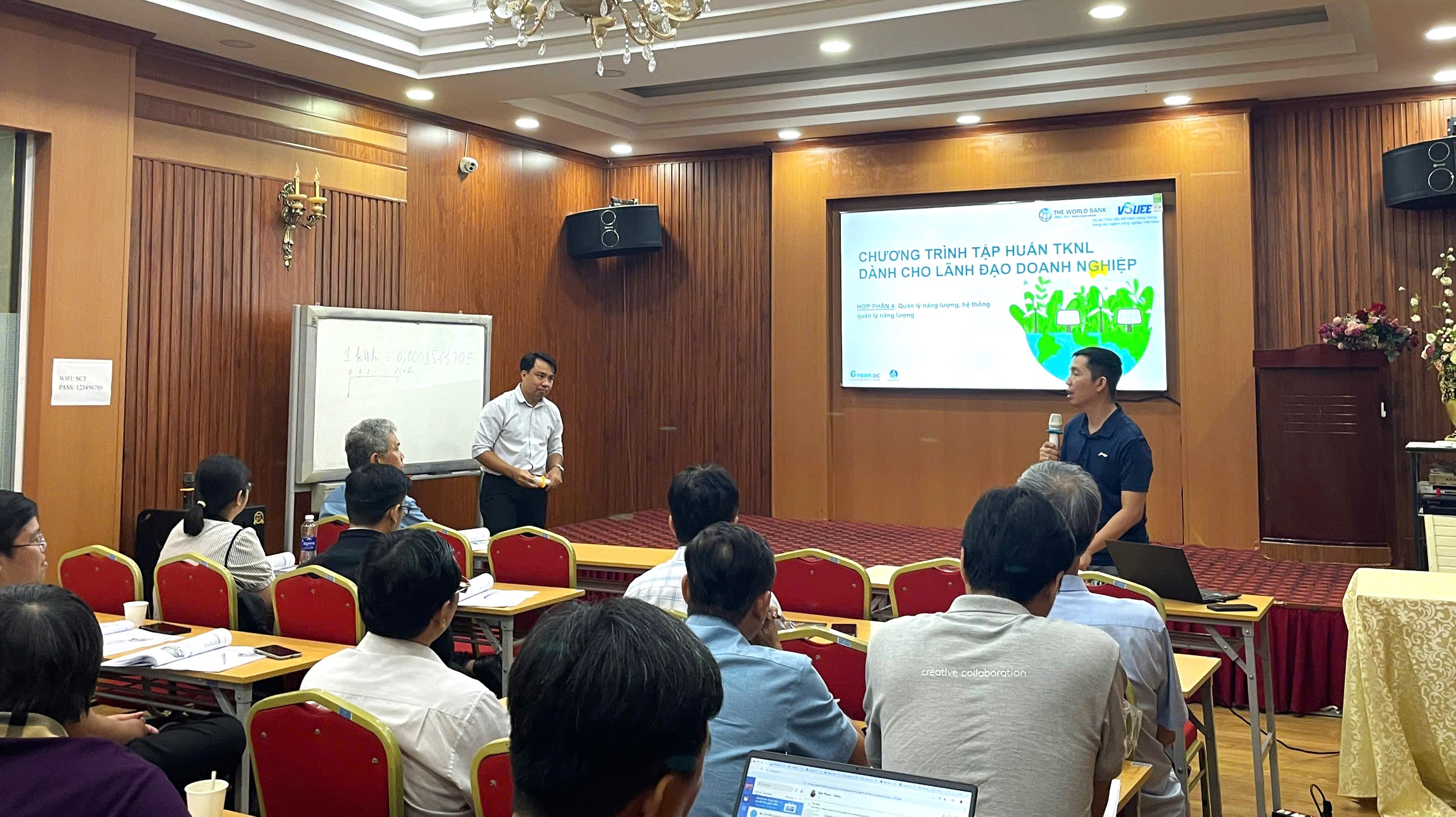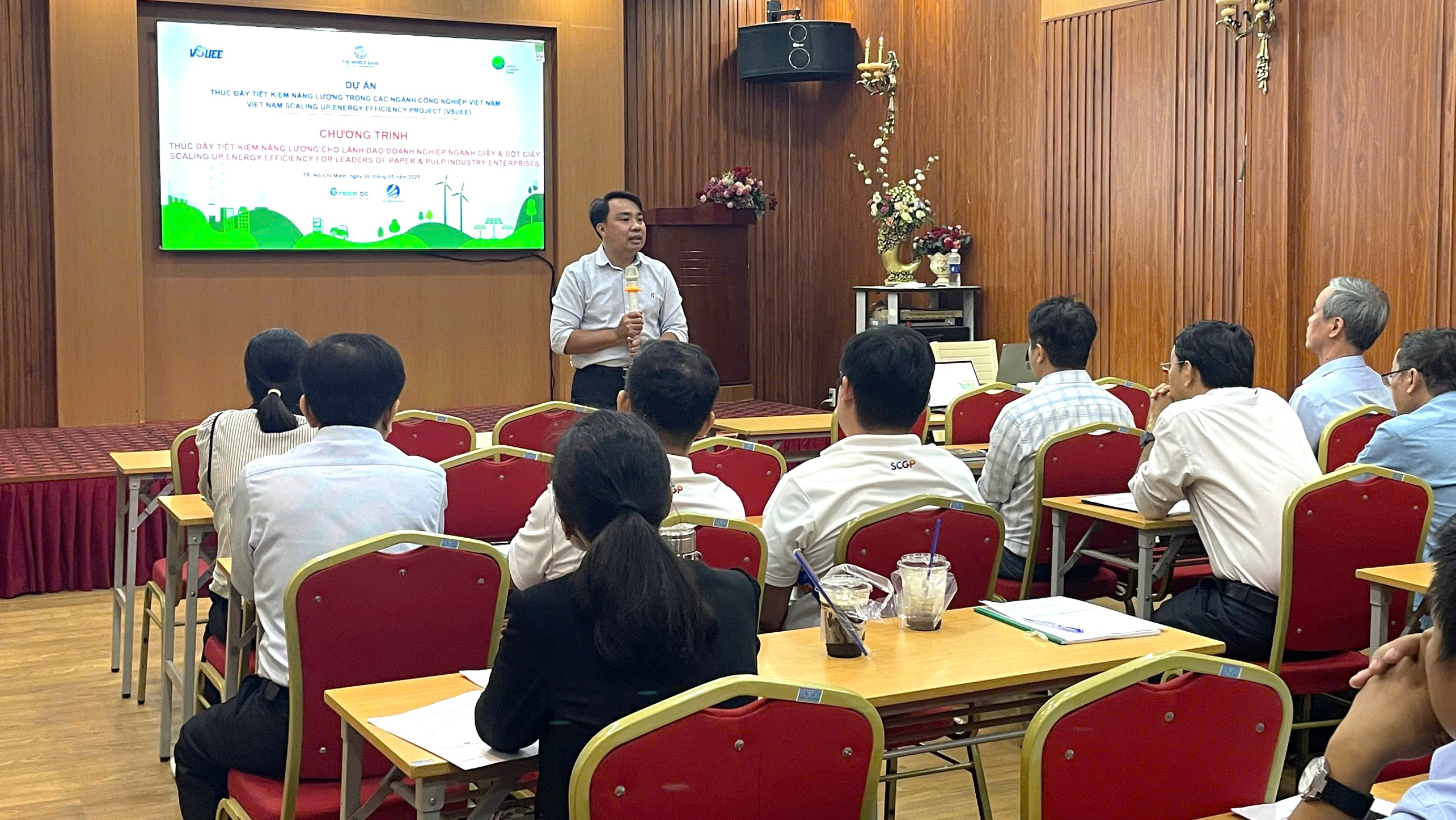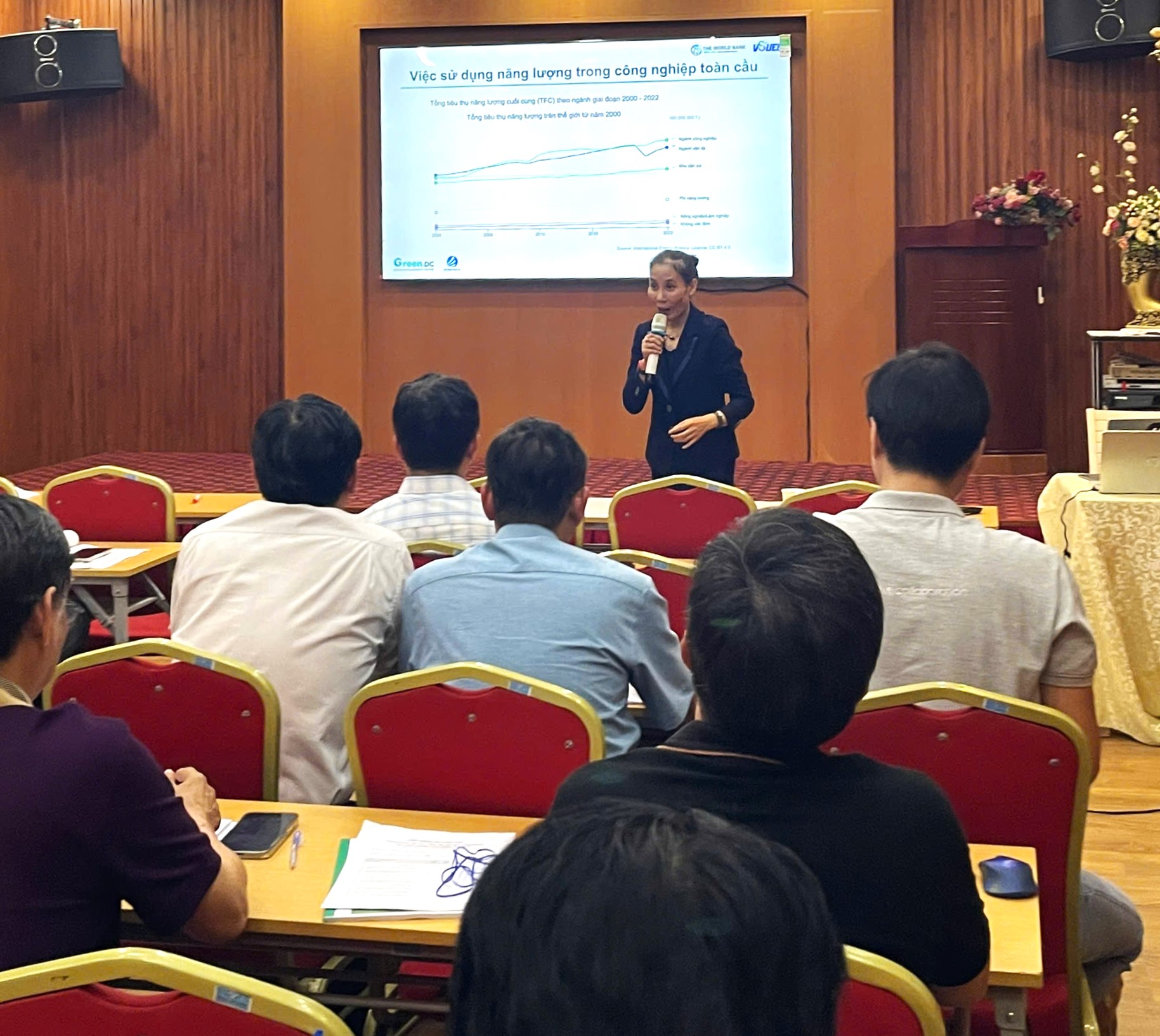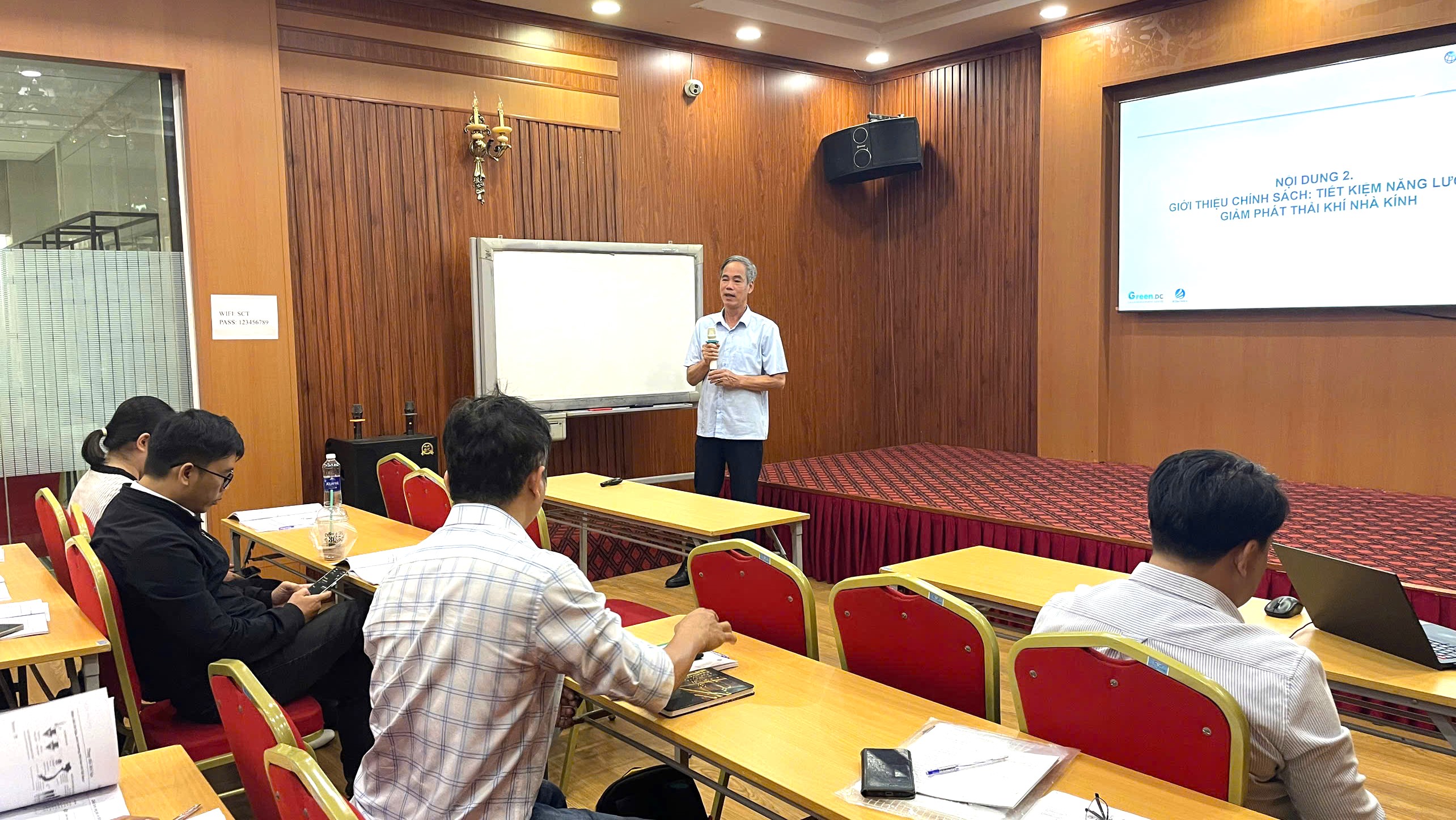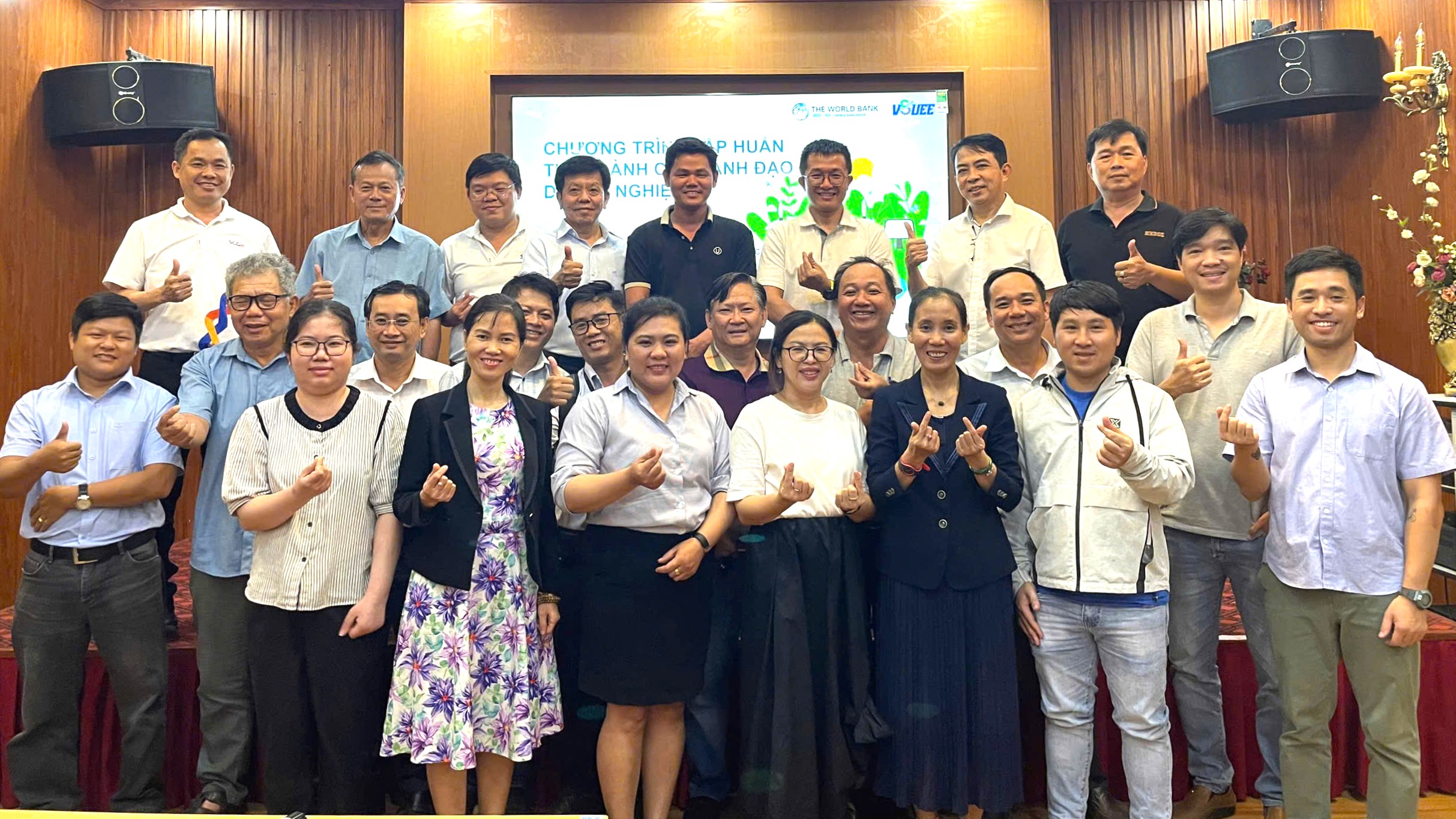This marks the fourth training session specifically designed for industrial enterprise leaders, with this edition focusing on the Pulp and Paper industry – a sector characterized by high energy consumption and increasing pressure from environmental regulations and sustainability demands.
| Globally, the paper industry is among the top five industrial sectors with the highest energy consumption, accounting for around 4% of total global energy use annually. Due to its intensive energy demands, reducing fuel consumption poses significant challenges for the industry. |
The Pulp and Paper sector in Vietnam consumes a large amount of both thermal and electrical energy during production processes such as pulping, paper drying, wastewater, and chemical treatment. Many enterprises still rely on outdated, low-efficiency equipment and have yet to invest significantly in energy optimization solutions. According to evaluations by the Vietnam Paper Corporation, energy costs account for 20–30% of total production costs in the industry. With over 500 paper manufacturing enterprises and an annual growth rate of 15–18%, energy demand in the paper sector is expected to rise rapidly in the coming years. Energy experts estimate that the potential for energy savings in this industry is very high.
The training program provided core knowledge in the following areas: (i) Identifying potential and developing energy efficiency projects in the Pulp and Paper industry; (ii) Energy auditing and investment performance evaluation; (iii) Application of MRV (Measurement, Reporting, and Verification) systems in energy efficiency projects; (iv) Marketing skills and strategies for sustainable business development. In addition, industry-specific topics were also covered, including steam and heat management models, waste heat recovery technologies, and improvements to motors and pumps within paper production systems.
Mr. Diep The Cuong (left), Energy Expert, introduced the policy of energy saving and greenhouse gas emission reduction.
Mr. Nguyen Manh Tuan, Energy Expert, presented on the relationship between energy, environment, production, business, and clean energy.
The training course brings together experienced lecturers from technical universities and professional experts in the energy field. Participants included senior leaders from major enterprises in the industry who shared experiences, presented real-world challenges, and discussed applicable solutions for their production environments.
The training program not only offered technical and management insights on energy efficiency but also played a pivotal role in transforming leadership mindsets and strategic approaches. In today’s global shift toward sustainable development, energy is no longer just a cost factor—it has become a critical component in maintaining competitive advantage and accessing international markets. This initiative represents a concrete step forward in helping the Pulp and Paper industry transition toward modernization, green growth, and sustainable development amid increasingly stringent environmental standards and corporate responsibility expectations.
Ms. Nguyen Thi Minh Trinh, Energy Expert, presented on the current status of energy use, potential for energy saving in the industrial and Paper & Pulp sector in Vietnam.
Mr. Bui Xuan Canh, Representative of the Risk Sharing Facility (RSF) Management Board, introduced the fund and how to issue RSF guarantees.
| In the coming period, similar training programs will continue to be rolled out for other industrial groups, including: Ceramics – Bricks, Iron and Steel, Cement, and Plastics, with tailored curricula designed to ensure sector-specific applicability and practical effectiveness |
VSUEE's Project Board Management.
